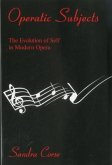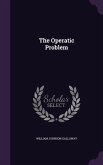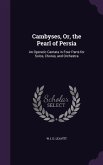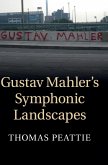Although Gustav Holst is rarely thought of as an opera composer, his operatic works provide a gateway to the exploration of how a budding opera composer negotiated the British operatic world across his career and how his synthesis of a myriad of cultural influences in his operatic works affected his reputation and success as a composer. This interdisciplinary study provides a kaleidoscopic view of how overlapping and often contradictory cultural influences such as imperialism, religion, literature, indigenous theatre, philosophy, folk culture, nationalism, and historiography are reflected in Holst's operas and figure into his reception as a composer of operas.
Hinweis: Dieser Artikel kann nur an eine deutsche Lieferadresse ausgeliefert werden.
Hinweis: Dieser Artikel kann nur an eine deutsche Lieferadresse ausgeliefert werden.








